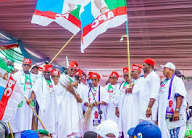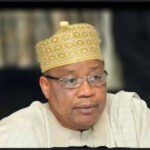The Myth of Simple Governance: Why Running a Country is Indeed Rocket Science

The notion that governing a country is not rocket science is a myth that has been perpetuated for far too long. In fact, running a government, especially one as complex and populous as Nigeria’s, requires a tremendous amount of intellectual capacity, strategic thinking, and problem-solving skills.
The idea that anyone can simply step into the role of a leader and navigate the intricacies of governance without extensive knowledge, experience, and expertise is not only naive but also dangerous.
Nigeria, with its over 200 million people and annual growth rate of 5 million, is a behemoth of a country that demands careful planning, nuanced decision-making, and a deep understanding of the complex issues that affect its citizens. The problems that Nigeria faces are not simple ones; they are “wicked problems” that require innovative solutions, careful analysis, and a willingness to think outside the box.
Unfortunately, the intellectual class in Nigeria is woefully unprepared to tackle these challenges. Rather than engaging in thoughtful discussion and analysis, many so-called intellectuals are content to simply protest and criticize without offering any meaningful solutions.
This lack of depth and substance in their thinking is a major obstacle to progress, and it is a problem that must be addressed if Nigeria is to move forward.
The truth is that governance is not just about making decisions; it is about making informed decisions that are based on careful analysis, research, and a deep understanding of the issues at hand. It requires a level of intellectual curiosity, critical thinking, and problem-solving skills that is sadly lacking in many of Nigeria’s leaders.
In other parts of the world, we see a different approach to governance. In countries like the United States, for example, we see a robust intellectual culture that informs policy decisions and shapes the national conversation. The work of think tanks, research institutions, and academic centers provides a rich source of ideas and analysis that can be drawn upon by policymakers.
In contrast, Nigeria’s intellectual landscape is barren and unproductive. Rather than engaging in meaningful discussion and debate, many of our so-called intellectuals are content to simply pontificate and grandstand without offering any real substance or depth to their arguments.
The consequences of this intellectual poverty are stark. Without a robust intellectual culture to inform policy decisions, Nigeria is left to drift aimlessly, without a clear sense of direction or purpose. Our leaders are forced to rely on intuition and instinct rather than careful analysis and research, and the results are predictable: poor decision-making, lack of accountability, and a general sense of drift and uncertainty.
So, the next time someone tells you that governance is not rocket science, remind them that it is indeed a complex and challenging field that requires careful planning, nuanced decision-making, and a deep understanding of the issues at hand. It is not a field for the faint of heart or the intellectually lazy. Rather, it is a field that demands the best and brightest minds, and a willingness to think deeply and critically about the challenges that we face. Anything less is a disservice to the Nigerian people and a recipe for disaster.









